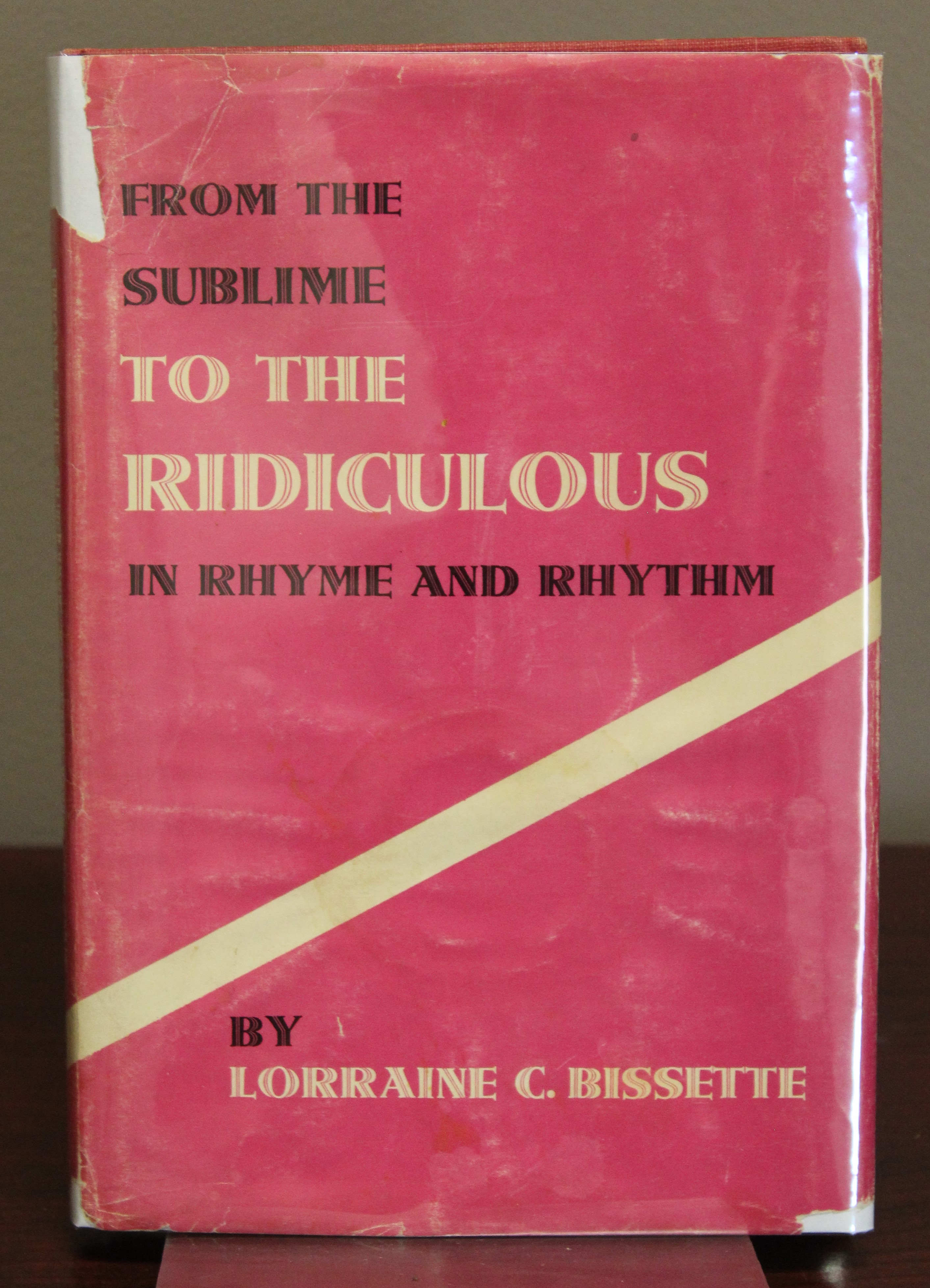So Strange Victory
-
Douglas Mercer
- Posts: 10963
- Joined: Tue Mar 28, 2023 7:29 pm
So Strange Victory
Douglas Mercer
November 26 2024
Set to a march of ominous portent the sublime song Josephine details the approach to the end of the Age and explicates the inner logistics of how the War will conclude. Marches are pieces of music with strong and regular rhythms, originally written for marching troops. They are performed by military bands and have emphatic beats.
Not tonight, Josephine
In an army's strength
Therein lies the dénouement
Life is a War said Heraclitus and War is Justice (in the end it’s right). The power of the various forces arrayed at the beginning determines the outcome. The various plans, strategies, maneuvers of the armies on the field are only an unfolding of the inevitable which was always present, if unseen, at the inception. The various armies and powers of being are made use of in the exfoliation of fate and each participant wants to break out of the necessary into the realm of freedom but the fate that even the gods obey is mysterious and reigns.
From here you're haunting me
By the Seine
So beautiful
Only not to be of use
Impossible
Possible
So strange, victory
Josephine Bonaparte (born Marie Josephe Rose Tascher de La Pagerie) was the first wife of Emperor Napoleon 1 and as such was Empress Of The French from 18 May 1804 until their marriage was annulled on 10 January 1810. She had affairs with several leading political figures and in 1795 she met Napoleon and became his mistress. In a letter to her he wrote: I awake full of you. Your image and the memory of last night’s pleasures has left no rest for my senses.
In the song the Emperor of the French recalls his time in Paris with his wife and is possessed by the memory’s beauty; as he travels on to Russia he wishes that he could re-live those times but finds that as an instrument of fate (as all men are) he must play this part in the grand drama and be of use to the impersonal driving cosmic force. Not to be of of use is said to be impossible until the Victory has occurred—then it is possible.
The end of this drama will be peculiar, and victory will not be as it seemed to be unfolding but will be something rich and strange (the burning wood always comes to Dunsinane)
Twelve hundred spires
The only sound Moscow burning
In the annals of military history, few campaigns stand out as starkly as Napoleon Bonaparte’s Russian Campaign of 1812. The retreat from Moscow, in particular, has become emblematic of the broader challenges faced by imperial ambitions against unwavering resistance and the unforgiving wrath of nature. Here, we delve into the specifics of this retreat, its background, and its profound implications
The Russians, understanding the logistical nightmare of supplying such a vast army, adopted a scorched earth policy. As they retreated, they burned crops, destroyed infrastructure, and evacuated towns, depriving the French of supplies and shelter. This strategy, combined with the vastness of the Russian lands, meant that the French were always overstretched and under-resourced.
Entering Moscow, Napoleon expected the Russians to sue for peace, but Moscow was not the prize he anticipated. The retreating Russians, true to their scorched-earth strategy, set the city aflame. With Moscow burning and no sign of the Russian capitulation, Napoleon’s situation grew dire. Winter was approaching, and he was in a city that could not sustain his army.
By mid-October, with his position untenable and the Russian army still a threat, Napoleon decided to retreat, marking the beginning of his army’s end (the denouement in the last extremity).
In an Army’s strength therein lies the denouement
In the midst of his retreat from Russia Napoleon is said to have claimed that from the sublime to the ridiculous is but a step. He was doing so as he was cutting and running, leaving his men to their fates, and thus abandoned the first rule of the honorable leader which is to go down with the ship.
There is only one step from the sublime to the ridiculous. Napoleon said this during his retreat from Russia.
1) The sublime is only a step removed from the ridiculous.
2) From the sublime to the ridiculous there is but a step.
The earliest close match for this saying located by Q1 appeared in French in a 1777 collection of philosophical thoughts titled Pensées Nouvelles et Philosophiques. The words were attributed to the prominent author Bernard Le Bovier de Fontenelle.
Du sublime au ridicule, disait Fontenelle, il n’y a qu’un pas: de la raillerie à l’insulte il y en a encore moins.
From the sublime to the ridiculous, said Fontenelle, it is only one step: from raillery to insult there is even less.
In 1767 Traité Des Extremes ou Éléments De La Science De la Réalité by the proto-sceptic Pierre-Jacques Changeux was published, and the book included a sentence describing a close connection between the sublime and the ridiculous. This connection provided an interesting precursor to the saying under examination. When the book by Changeux was reviewed in the periodical Mercure de France the sentence was reprinted and further disseminated: The sublime must not be forced, lest it brush against the ridiculous and, consequently, be destroyed (history comes first as tragedy and next as farce).
History comes first as tragedy, then as tragedy, and last as total power.
The last circumstance recalls a fiend-like appearance drawn by Shakespeare; in which, exclusive of the application, he has converted ideas of deformity into the true sublime, and rendered an image terrible, which in other hands would have probably been ridiculous.
On the revival of literature, the first writers seemed not to have observed any selection in their thoughts and images. Dante, Petrarch, Boccacio, Ariosto, make very sudden transitions from the sublime to the ridiculous.
When authors and critics talk of the sublime, they see not how nearly it borders on the ridiculous.
In 1815 Dominique-Georges-Frédéric Dufour de Pradt published a memoir that included remarks spoken by Napoleon Bonaparte in the author’s presence. De Pradt held several important positions over the years including secretary to Bonaparte, Archbishop of Mechlin, and Ambassador to Warsaw. One possible translation of Bonaparte’s comment in the following passage would be: From the sublime to the ridiculous it is only one step. The remark was spoken after Bonaparte’s pivotal defeat in Russia
Enfin, après avoir répété de nouveau deux ou trois fois du sublime au ridicule il n’y a qu’un pas; avoir demandé s’il était reconnu, et dit que cela lui était égal.
To a proposal of returning by the way of Silesia, he replied, ah, ah, la Prusse. In short, after having repeated again and again, du sublime au ridicule, il n’y a qu’un pas.
You intended to devote an entire year to the study of the religious problem and the summer months of 1882 to square the circle and win that million. Pomegranate! From the sublime to the ridiculous is but a step. Pyjamas, let us say?—Joyce, 1922
Empty like the Tuileries
Like a dream
Vienna seems
The Tuileries Palace was a royal and imperial palace in Paris which stood on the right bank of the Seine, directly in front of the Louvre Palace. It was the Parisian residence of most French Monarchs from Henry 4 to Napoleon 3 until it was burned down in the Paris Commune in 1871. The Palais des Tuileries (Tuileries Palace) is the former residence of the Kings and Queens of France. One of the most beautiful palaces in France, it was destroyed by fire in 1871 during the Paris Commune. The monument was an integral part of Paris’ Historical Axis. Today its gardens are the oldest in Paris, known as the Jardin des Tuileries.
Unreal City
Falling towers
Jerusalem Athens Alexandria
Vienna London
Unreal
--The Wasteland, 1922
In the last extremity
To advance or not to advance
Even still you're calling me
Not tonight, Josephine
The last extremity is that very end of the drama, the end of the age, towards which we are fast heading; in a melodrama of titanic forces in which foe battles foe must the army advance, remain in position, or possibly retreat? Fire or keep the powder dry? These are superfluous questions because the initial disposition of the armies determines the outcome; in the distance see the fires burning and you can hear it (freedom) calling but not tonight—as is said.
So Strange: Victory
***
Notes:
I hear ridiculous voices (Paul Hewson)
Ideas take hold of people and use them—Phillip Dick 1980.
From the Sublime to the Ridiculous there is no step—old English saying
It was a close-run thing--The Duke Of Wellington, on the final disposition of the Battle Of Waterloo
There is only one step from the sublime to the ridiculous. Nothing is impossible, the word itself says I'm possible! Start by doing what's necessary; then do what's possible; and suddenly you are doing the impossible as ridiculous as that may sound.
November 26 2024
Set to a march of ominous portent the sublime song Josephine details the approach to the end of the Age and explicates the inner logistics of how the War will conclude. Marches are pieces of music with strong and regular rhythms, originally written for marching troops. They are performed by military bands and have emphatic beats.
Not tonight, Josephine
In an army's strength
Therein lies the dénouement
Life is a War said Heraclitus and War is Justice (in the end it’s right). The power of the various forces arrayed at the beginning determines the outcome. The various plans, strategies, maneuvers of the armies on the field are only an unfolding of the inevitable which was always present, if unseen, at the inception. The various armies and powers of being are made use of in the exfoliation of fate and each participant wants to break out of the necessary into the realm of freedom but the fate that even the gods obey is mysterious and reigns.
From here you're haunting me
By the Seine
So beautiful
Only not to be of use
Impossible
Possible
So strange, victory
Josephine Bonaparte (born Marie Josephe Rose Tascher de La Pagerie) was the first wife of Emperor Napoleon 1 and as such was Empress Of The French from 18 May 1804 until their marriage was annulled on 10 January 1810. She had affairs with several leading political figures and in 1795 she met Napoleon and became his mistress. In a letter to her he wrote: I awake full of you. Your image and the memory of last night’s pleasures has left no rest for my senses.
In the song the Emperor of the French recalls his time in Paris with his wife and is possessed by the memory’s beauty; as he travels on to Russia he wishes that he could re-live those times but finds that as an instrument of fate (as all men are) he must play this part in the grand drama and be of use to the impersonal driving cosmic force. Not to be of of use is said to be impossible until the Victory has occurred—then it is possible.
The end of this drama will be peculiar, and victory will not be as it seemed to be unfolding but will be something rich and strange (the burning wood always comes to Dunsinane)
Twelve hundred spires
The only sound Moscow burning
In the annals of military history, few campaigns stand out as starkly as Napoleon Bonaparte’s Russian Campaign of 1812. The retreat from Moscow, in particular, has become emblematic of the broader challenges faced by imperial ambitions against unwavering resistance and the unforgiving wrath of nature. Here, we delve into the specifics of this retreat, its background, and its profound implications
The Russians, understanding the logistical nightmare of supplying such a vast army, adopted a scorched earth policy. As they retreated, they burned crops, destroyed infrastructure, and evacuated towns, depriving the French of supplies and shelter. This strategy, combined with the vastness of the Russian lands, meant that the French were always overstretched and under-resourced.
Entering Moscow, Napoleon expected the Russians to sue for peace, but Moscow was not the prize he anticipated. The retreating Russians, true to their scorched-earth strategy, set the city aflame. With Moscow burning and no sign of the Russian capitulation, Napoleon’s situation grew dire. Winter was approaching, and he was in a city that could not sustain his army.
By mid-October, with his position untenable and the Russian army still a threat, Napoleon decided to retreat, marking the beginning of his army’s end (the denouement in the last extremity).
In an Army’s strength therein lies the denouement
In the midst of his retreat from Russia Napoleon is said to have claimed that from the sublime to the ridiculous is but a step. He was doing so as he was cutting and running, leaving his men to their fates, and thus abandoned the first rule of the honorable leader which is to go down with the ship.
There is only one step from the sublime to the ridiculous. Napoleon said this during his retreat from Russia.
1) The sublime is only a step removed from the ridiculous.
2) From the sublime to the ridiculous there is but a step.
The earliest close match for this saying located by Q1 appeared in French in a 1777 collection of philosophical thoughts titled Pensées Nouvelles et Philosophiques. The words were attributed to the prominent author Bernard Le Bovier de Fontenelle.
Du sublime au ridicule, disait Fontenelle, il n’y a qu’un pas: de la raillerie à l’insulte il y en a encore moins.
From the sublime to the ridiculous, said Fontenelle, it is only one step: from raillery to insult there is even less.
In 1767 Traité Des Extremes ou Éléments De La Science De la Réalité by the proto-sceptic Pierre-Jacques Changeux was published, and the book included a sentence describing a close connection between the sublime and the ridiculous. This connection provided an interesting precursor to the saying under examination. When the book by Changeux was reviewed in the periodical Mercure de France the sentence was reprinted and further disseminated: The sublime must not be forced, lest it brush against the ridiculous and, consequently, be destroyed (history comes first as tragedy and next as farce).
History comes first as tragedy, then as tragedy, and last as total power.
The last circumstance recalls a fiend-like appearance drawn by Shakespeare; in which, exclusive of the application, he has converted ideas of deformity into the true sublime, and rendered an image terrible, which in other hands would have probably been ridiculous.
On the revival of literature, the first writers seemed not to have observed any selection in their thoughts and images. Dante, Petrarch, Boccacio, Ariosto, make very sudden transitions from the sublime to the ridiculous.
When authors and critics talk of the sublime, they see not how nearly it borders on the ridiculous.
In 1815 Dominique-Georges-Frédéric Dufour de Pradt published a memoir that included remarks spoken by Napoleon Bonaparte in the author’s presence. De Pradt held several important positions over the years including secretary to Bonaparte, Archbishop of Mechlin, and Ambassador to Warsaw. One possible translation of Bonaparte’s comment in the following passage would be: From the sublime to the ridiculous it is only one step. The remark was spoken after Bonaparte’s pivotal defeat in Russia
Enfin, après avoir répété de nouveau deux ou trois fois du sublime au ridicule il n’y a qu’un pas; avoir demandé s’il était reconnu, et dit que cela lui était égal.
To a proposal of returning by the way of Silesia, he replied, ah, ah, la Prusse. In short, after having repeated again and again, du sublime au ridicule, il n’y a qu’un pas.
You intended to devote an entire year to the study of the religious problem and the summer months of 1882 to square the circle and win that million. Pomegranate! From the sublime to the ridiculous is but a step. Pyjamas, let us say?—Joyce, 1922
Empty like the Tuileries
Like a dream
Vienna seems
The Tuileries Palace was a royal and imperial palace in Paris which stood on the right bank of the Seine, directly in front of the Louvre Palace. It was the Parisian residence of most French Monarchs from Henry 4 to Napoleon 3 until it was burned down in the Paris Commune in 1871. The Palais des Tuileries (Tuileries Palace) is the former residence of the Kings and Queens of France. One of the most beautiful palaces in France, it was destroyed by fire in 1871 during the Paris Commune. The monument was an integral part of Paris’ Historical Axis. Today its gardens are the oldest in Paris, known as the Jardin des Tuileries.
Unreal City
Falling towers
Jerusalem Athens Alexandria
Vienna London
Unreal
--The Wasteland, 1922
In the last extremity
To advance or not to advance
Even still you're calling me
Not tonight, Josephine
The last extremity is that very end of the drama, the end of the age, towards which we are fast heading; in a melodrama of titanic forces in which foe battles foe must the army advance, remain in position, or possibly retreat? Fire or keep the powder dry? These are superfluous questions because the initial disposition of the armies determines the outcome; in the distance see the fires burning and you can hear it (freedom) calling but not tonight—as is said.
So Strange: Victory
***
Notes:
I hear ridiculous voices (Paul Hewson)
Ideas take hold of people and use them—Phillip Dick 1980.
From the Sublime to the Ridiculous there is no step—old English saying
It was a close-run thing--The Duke Of Wellington, on the final disposition of the Battle Of Waterloo
There is only one step from the sublime to the ridiculous. Nothing is impossible, the word itself says I'm possible! Start by doing what's necessary; then do what's possible; and suddenly you are doing the impossible as ridiculous as that may sound.
-
Douglas Mercer
- Posts: 10963
- Joined: Tue Mar 28, 2023 7:29 pm
-
Douglas Mercer
- Posts: 10963
- Joined: Tue Mar 28, 2023 7:29 pm
Re: So Strange Victory
Not tonight, Josephine
In an army's strength
Therein lies the dénouement
From here you're haunting me
By the Seine
Oh, so beautiful
Only not to be of use
Impossible
Possible, oh yes
So strange, victory
Twelve hundred spires
The only sound Moscow burning
Empty like the Tuileries
Like a dream
Vienna seems
Only not to be of use
Impossible
In the last extremity
To advance or not to advance
I hear you laughing
Even still you're calling me
Not tonight
Not tonight
Not tonight, Josephine
In an army's strength
Therein lies the dénouement
From here you're haunting me
By the Seine
Oh, so beautiful
Only not to be of use
Impossible
Possible, oh yes
So strange, victory
Twelve hundred spires
The only sound Moscow burning
Empty like the Tuileries
Like a dream
Vienna seems
Only not to be of use
Impossible
In the last extremity
To advance or not to advance
I hear you laughing
Even still you're calling me
Not tonight
Not tonight
Not tonight, Josephine







